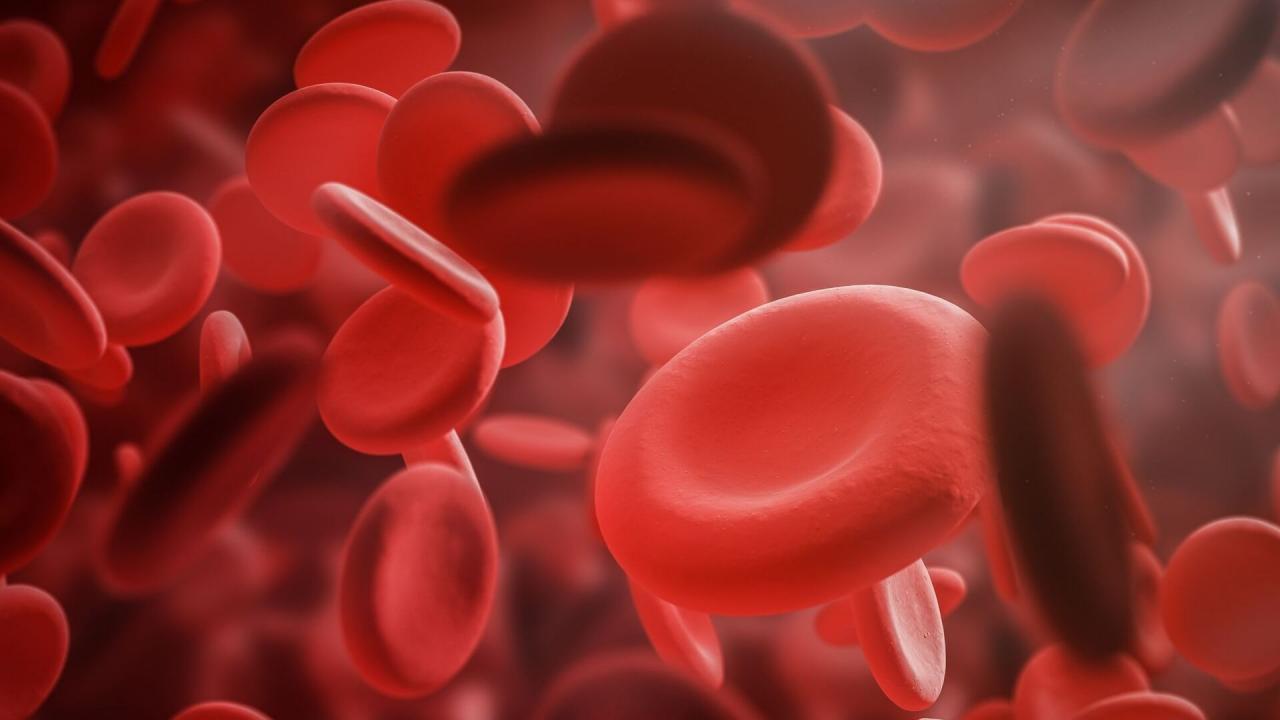 Photo: Getty Images
Photo: Getty Images
If you’re a woman chances are you either have been, or will be, anemic at least once during your lifetime. While anemia certainly doesn’t discriminate between men and women, there are certain conditions unique to women, such as pregnancy and menstruation, which make anemia particularly troubling for women.
Here, we’ll take a closer look at anemia, its symptoms, risk factors, types and treatments.
What is Anemia?
In simplest terms, anemia occurs when your body doesn’t produce enough red blood cells. Red blood cells contain the protein hemoglobin. These cells are the workhorses charged with the task of carrying oxygen from the lungs to vital organs and muscle throughout the body.
They also gather up carbon dioxide and return it back to the lungs so that it can be expelled from the body. Without enough healthy red blood cells, this cycle is interrupted and inefficient.
As we’ll see below, some forms of anemia can be mild and may last only a short amount of time. Other forms may be more severe and may be chronic and last a long time.
What are Anemia Symptoms?
One of the most common symptoms of anemia is an unusual or unexplained feeling of tiredness or fatigue. Other symptoms include health events such as shortness of breath, chest pain, irregular heartbeat, pale skin, headaches, dizziness or feelings of faintness, cognitive problems such as difficulty concentrating, cold hands, feet or headaches.
What Causes Anemia?
Anemia is caused by three main conditions: excessive bleeding, low red blood cell production, and destruction of red blood cells. The majority of the conditions that cause anemia fall into one of these categories.
What are Common Anemia Types? How is Anemia Treated?
While there can be many causes for anemia, some of the more commonly known causes include:
• Aplastic anemia: caused by reduced ability to produce more supplies of red blood cells due to autoimmune diseases, drugs and infections. Relatively rare, this form of anemia may be life threatening, treated with blood transfusions and bone marrow transplant may be required.
• Bone marrow anemia: inability of body to produce red blood cells caused by disease of the blood or bone marrow such as leukemia, lymphoma, myelodysplasia, cancer and multiple myeloma. It can be life-threatening, treatment depends on the underlying cause and may include medications, bone marrow transplant or chemotherapy.
• Chronic disease anemia: some forms of anemia may be caused by chronic diseases such as rheumatoid arthritis, cancer, Crohn’s disease, AIDS or HIV, kidney failure and other types of inflammatory diseases. Underlying disease must be treated. Anemia symptoms may be relieved by blood transfusions, or injections of synthetic erythropoietin.
• Hemolytic anemia: may be inherited. It causes destruction of red blood cells more quickly than replacement cells can be manufactured. Hemolytic anemia may be caused by blood diseases. Treatments includes managing underlying condition, steroids, immune suppressants, blood transfusions or plasmapheresis.
• Iron deficiency anemia: caused by insufficient iron. Iron is required to make adequate supplies of hemoglobin. Iron deficiency anemia is treated with iron supplements. If caused by conditions other than menstruation, the source of blood loss must be located and stopped.
• Sickle cell anemia: inherited condition which causes shape mutation of cells resulting in premature death of red blood cells. It can become serious. Sickle cell anemia is treated by oxygen, pain and fever medications, blood transfusions, antibiotics, folic acid supplement, bone marrow transplants and hydroxyurea, also known as Droxi or Hydrea.
• Vitamin deficiency anemia: caused by insufficient amounts of folate, vitamin B12, and other key nutrients required to produce adequate supplies of red blood. It is treated with folic acid and B12 supplements. Injections of B12 may be required.
This list is not meant to be exhaustive. There are other forms of anemia such as thalassemia which are more rare.
Who is at Risk?
People from all walks of life can be at risk depending on the underlying cause of your anemia. In general, people with the following conditions may be at risk: women who are still menstruating, women with poor diets or those lacking in vitamin B12, iron, or folate, as well as pregnant women. Women with a family history (for inherited forms such as sickle cell anemia), intestinal conditions such as Crohn’s disease, blood diseases, autoimmune disorders and chronic conditions such as cancer or kidney failure, may also be at risk.
What are Anemia Complications?
One of the most common complaints with anemia, regardless of the type of anemia, is fatigue. Anemia fatigue is a bone-weary type of fatigue that may interfere with your ability to engage in everyday tasks.
Because your heart is working overtime due to insufficient oxygen deliveries, it’s possible that anemia may lead to an arrhythmia or irregular heartbeat and congestive heart failure. More severe cases of anemia or inherited forms of anemia can be life-threatening.
Sources:
Anemia. The Mayo Clinic. 19 Feb 2011. http://www.mayoclinic.com/health/anemia/DS00321
What is Anemia? National Heart Lung and Blood Institute. http://www.nhlbi.nih.gov/health/health-topics/topics/anemia
Reviewed October 17, 2011
by Michele Blacksberg RN
Edited by Malu Banuelos






Add a CommentComments
There are no comments yet. Be the first one and get the conversation started!